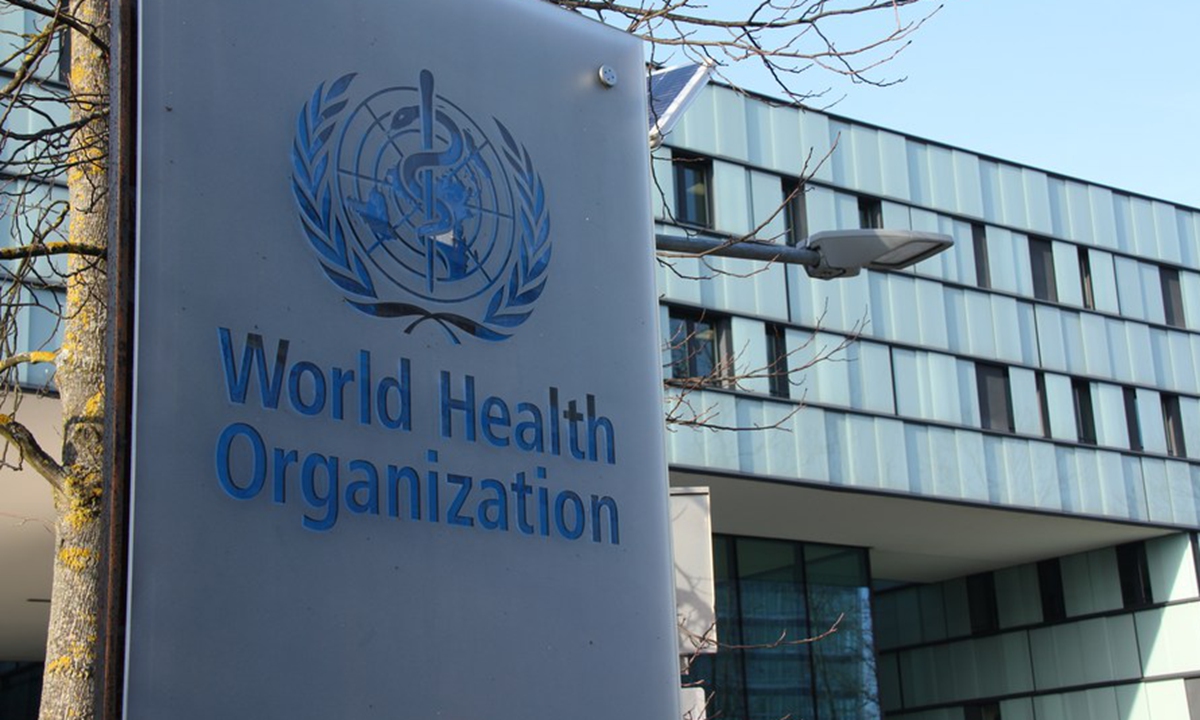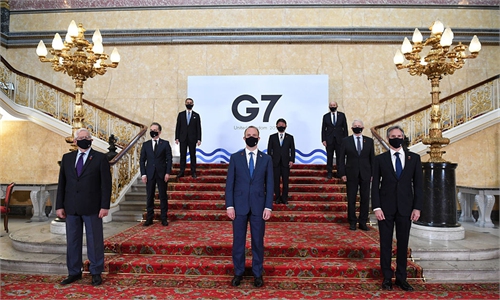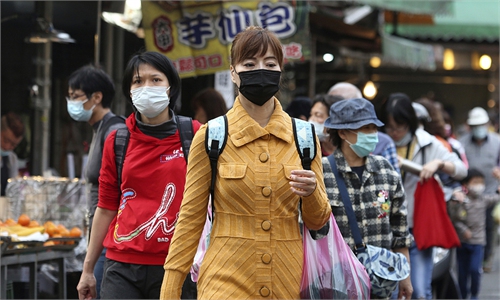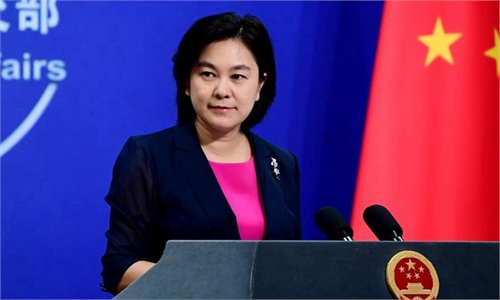
An exterior view of the headquarters of the World Health Organization (WHO) in Geneva, Switzerland. Photo: Xinhua
The Taiwan secessionist authority has failed to receive an invitation from the World Health Assembly (WHA) for the fifth consecutive year even as the US and its other major Western countries voiced their support to the island earlier this month, and the authority of the island has once again complained and accused the Chinese mainland of "bullying" Taiwan and blocking Taiwan from attending the WHA.
Chinese mainland analysts said that the Democratic Progressive Party (DPP) with a separatism and secessionism stance should understand that the Biden administration and other Western governments will only use Taiwan as a tool to provoke the Chinese mainland, so they don't care about Taiwan's public health at all, and the most effective shortcut for Taiwan to return to the WHA is to respect the one-China principle and ask Beijing for permission, rather than turning to Washington and Europe.
The Chinese Foreign Ministry said on Tuesday that the secessionist stance of the Taiwan DPP authority is the key reason why the island cannot participate in the WHA.
"Since the DPP gained power in 2016, it has always insisted on a Taiwan secessionist stance, and refused to admit that both the mainland and Taiwan belong to the same China, so the political basis for Taiwan to attend the WHA no longer exists," Hua Chunying, a spokesperson of the Chinese Foreign Ministry, said at Tuesday's routine press conference.
The 74th WHA will take place May 24-June 1 in Geneva via video link. The online application closed on Monday, and the Taiwan authority said on Tuesday it didn't receive an invitation. On May 5, the G7 Foreign and Development Ministers' Meeting produced a communiqué to support "Taiwan's meaningful participation in World Health Organization forums and the World Health Assembly."
US Secretary of State Antony Blinken on May 7 also asked the WHO Director-General HIS NAME here to invite Taiwan to participate as an observer at the WHA.
"The US and other major Western powers are unqualified and illegitimate to make any call to help Taiwan secessionists in any international occasion. Their calls are useless. Because Taiwan is part of China, China is the country which has the right to decide whether the authority of the island could attend the event as part of China," said a Beijing-based Taiwan affairs expert who requested anonymity.
"If the DPP authority wants to return to WHA as an observer, the easiest way is to call Beijing to say it accepts the 1992 Consensus, which respects the one-China principle, and make a sincere promise to fix the cross-Straits relations. Maybe it would receive an invitation in one week as a reward. Taiwan politicians just don't understand, or refuse to accept that the most effective shortcut for it to attend international events can't be found in Washington or Europe," the expert said. "It's in Beijing."
Although the island of Taiwan can't attend the WHA, "Taiwan people are our compatriots who share the same flesh and blood with us. China's central government will take all necessary measures to safeguard their health and welfare," Hua said.
The real purpose for the DPP authority to hype the issue of the WHA is to use the COVID-19 pandemic as a pretext to seek secessionism… but the one-China principle fits the trend of the international community, and "the DPP authority should stop its political tricks, otherwise, it will only bring disgrace on its own head," Hua noted.
"Taiwan leaders at this moment might not able to make wise decisions as they are standing too close with the West and too far from the residents in the island and their compatriots in the mainland. If they continue to walk on this wrong path, sooner or later, they will see the serious consequences," Li Haidong, a professor at the Institute of International Relations at China Foreign Affairs University, told the Global Times.




